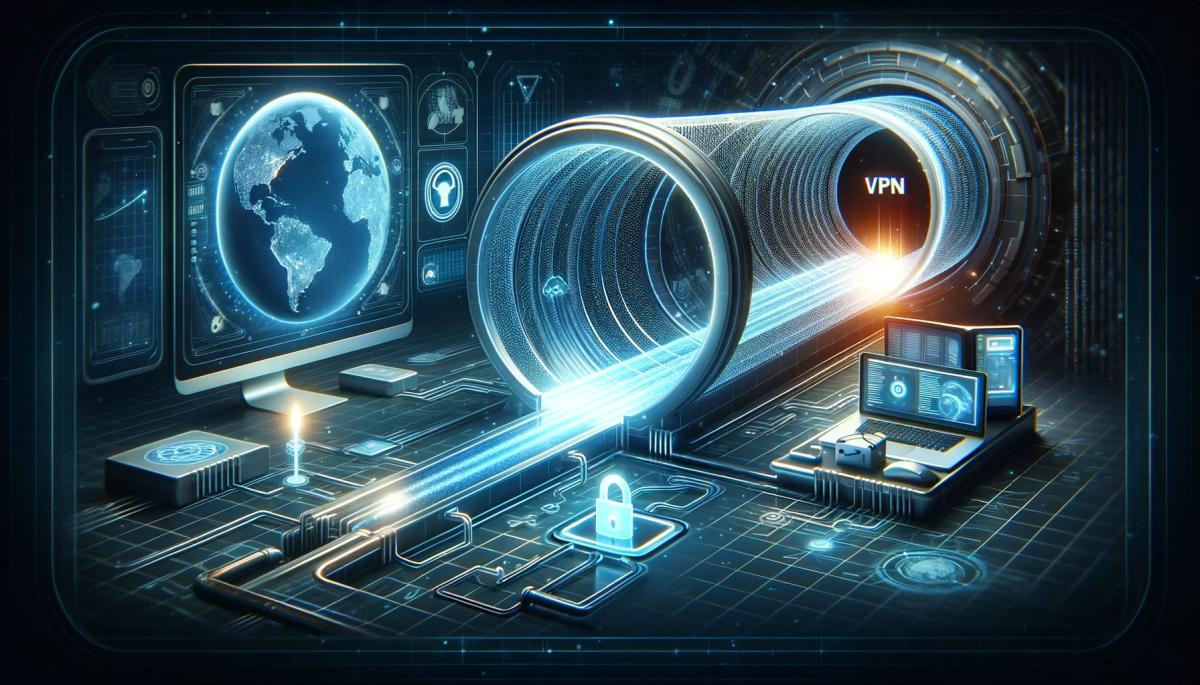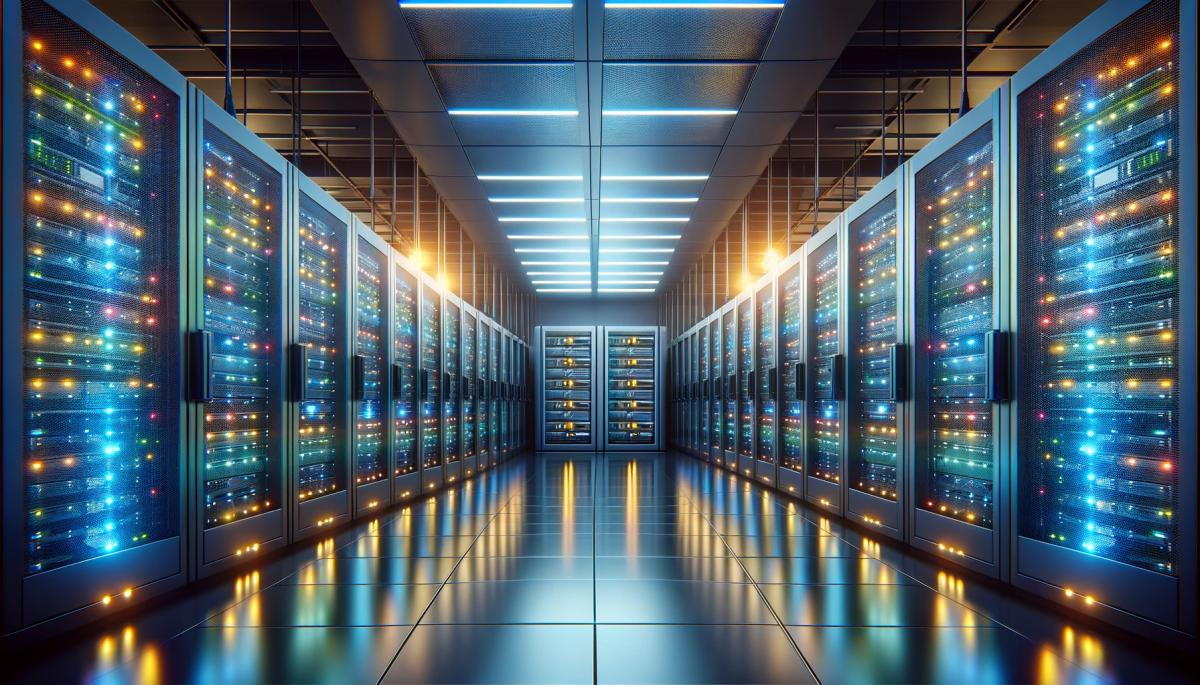VPN is an acronym you've probably heard before, but do you know exactly what it stands for and how it can impact your online activities? We will clearly explain how VPN works, its purposes, and the advantages and disadvantages it brings. You'll learn how VPN protects your privacy, allows access to blocked content, and what types of VPN exist.

The term VPN has been heard by almost everyone who has been on the internet for a while. However, few know exactly how it works and what purposes it serves. Most people consider VPN to be a way to erase their internet footprint, while others see it as a gateway to foreign content that is not available in their region.
Despite its many benefits, this service also has its downsides, which can significantly affect inexperienced users, such as a decrease in the quality of the internet connection. Interested in learning more about VPN? We have a comprehensive guide on VPN and tips on how to start using this connection.
What Is VPN and What Is It Used For?
First and foremost, let's look at what is behind the abbreviation VPN. Specifically, it stands for Virtual Private Network, which itself summarizes its purpose. VPN is designed to protect the privacy and security of the user while online. When using the service, the user can partially hide their internet footprint and the real IP address of the device used.
An average user in the Czech Republic can change their location from Prague to Paris with just a few clicks. This feature is widely used in countries with strict censorship, as well as for content that is available only in certain countries – this is typically seen with streaming services like Netflix or Amazon Prime Video.
Note: An IP address is a unique identification number assigned to a device connected to the internet. It allows the device to communicate with the internet network.
How Does VPN Work?
Now that you understand what a VPN is, we can delve deeper into its functions. The basic concept of the service is based on data encryption, which ensures privacy and security for users. Standard VPN services operate on a simple principle: a user downloads the provider’s app onto their device, logs into their account, chooses the IP address location, and connects.
The service can also be available as a browser extension or even as a VPN router. Upon activation, a VPN creates a virtual tunnel between the device and VPN servers. Through this tunnel, all data is sent, processed by the VPN server, and forwarded to the public internet. The same process is applied to data sent back to your device.

This way, a highly secure and anonymous environment is created through which you can send sensitive data. However, it would be naive to believe that the connection is completely anonymous. In most cases, it's possible to trace your online activities, even when using the best VPN. Finding the data will be significantly more challenging, requires a lot of effort, and will almost never be complete.
To better understand, let's summarize what VPN can be used for:
- Data encryption – VPN encrypts all data sent from your device, preventing anyone else from accessing it but you.
- Masking IP address and user identity – Normally, your computer’s IP address is used for internet connection. When VPN is enabled, the IP address is converted to the VPN server's IP address, which providers have in thousands worldwide. Therefore, no one knows that the data you send comes directly from you.
- Access to censored or blocked content – Since users can connect to various VPN servers located in many countries, they can easily appear as users from the country where the desired content is available.
Available Types of VPN
Commonly, you can encounter several types of VPNs, each designed for different purposes and offering varying levels of security. All of them will be discussed in detail below.
Site-to-site VPN
Site-to-Site VPN, also known as Router-to-Router VPN, is used to connect two or more geographically separate networks into a single extensive network. It is typically utilized by companies, corporations, or various organizations that need to create a secure and encrypted network between individual branches. VPN routers or concentrators are used for this connection.
Remote Access VPN
Remote Access VPN allows individual users to connect to corporate or other networks from anywhere they choose. The VPN’s task here is to create an encrypted connection between the user’s device and the corporate network, allowing secure access to corporate data or applications.
Cloud VPN
Cloud VPN is designed to protect data transferred to the cloud. During file transfers, users do not need to worry about data loss, theft, or intentional damage. This type of VPN is again mainly used by companies or creators who need to protect their data from hackers or competition.
Personal/mobile VPN
Ordinary users will mostly encounter personal or mobile VPN, which is used for secure connections from various devices. It can be used in a home environment as well as in public places, for example, if you want to connect to Wi-Fi at a train station or in a restaurant. Most of these VPNs operate through an application or browser extension.
VPN Protocols and Their Differences
VPNs can also be divided based on the protocols used, which differ in their security, speed and connection stability, encryption level, and reliability. Currently, you can encounter six protocols, specifically:
- PPTP – One of the oldest VPN protocols developed by Microsoft. It is known for its speed and simplicity. Compared to newer alternatives, it is considered less secure.
- L2TP/IPSec – The successor of the previous protocol, often implemented in conjunction with IPSec for increased security. L2TP itself creates a tunnel, while IPSec ensures encryption and data authentication.
- IKEv2/IPSec – Another combined protocol that excels in its ability to adapt to unstable connections or switching between multiple networks. It is an ideal choice for households using extenders for Wi-Fi distribution.
- SSTP – Mainly available on Windows operating systems. Its major advantage is a high level of security and the ability to bypass security measures of services that block most VPN providers.
- OpenVPN – OpenVPN is an open-source VPN known for its high level of security and flexibility. On the downside, the high level of encryption leads to reduced connection speed.
- WireGuard – The newest protocol variant providing the fastest data transfer and a high level of security. All top VPN providers are already able to offer this protocol to their users.
TIP: If you plan to use VPN on a daily basis across multiple devices, a VPN router will be the best solution for you. It already has VPN built-in, which is utilized by all connected devices.
When is it worth using a VPN?
Now that we've thoroughly explained what a VPN is and what it's for, we can move on to its practical uses. Generally speaking, a VPN service is appreciated by any user who cares about their privacy and security in the online environment. However, it is most commonly used for:
- Data protection on public Wi-Fi – public Wi-Fi is considered by experts to be one of the most dangerous. After connecting, hackers can relatively easily access your private data. However, if you connect via VPN at, for example, an airport or a café, all your data will be encrypted and protected;
- Secure remote access – most companies and organizations use VPN as an access point to their central network. This way, they achieve a secure connection, wherein they can control the devices that have access to the network. This significantly reduces the likelihood of data theft;
- Access to blocked content – you may commonly encounter services or content that are unavailable in the Cz. If your favorite streaming service has released new episodes of a series only in the USA, you can easily connect to a VPN, which will change your computer's IP address to the required country, allowing you to start streaming;
- Protection of data from hackers – whenever you connect to the internet, you are at risk of being attacked by a hacker. Long-term monitoring, which can again lead to an attack aimed at obtaining your data, such as credit card information, is also quite common;
- Blocking data sharing – while surfing the internet, your provider collects all the data, which can then be resold to third parties for more accurate advertising targeting. You can avoid this precisely by using VPN, as it blocks data sharing not only with your provider but with anyone else;
- Anonymity while surfing the internet – VPN can partially ensure your anonymity on the internet, making you less easily traceable. If you are worried someone might track your footprint on the internet, VPN will be a good solution for you;
- Cheap shopping – in the past, it has been proven that the price offer on some e-shops varies depending on the user's location. By changing the position of the IP address, you can shop cheaper in certain online stores;
- File downloading – users who download unauthorized content on the internet can avoid potential punishments by using VPN. It will also protect them from potential malware.

How can VPN affect your internet connection?
Besides the advantages, even the best VPNs have minor downsides. The biggest one is the possible impact on your internet connection. You may mainly encounter speed slowdowns or even outages. Generally, the more distant the VPN server, the slower the connection speed.
Your connection quality can also pose a problem. If you frequently struggle with very slow internet, connecting to a VPN won't be very comfortable for you. However, for occasional watching of series or short web browsing, it will suffice.
Other factors also determine the speed and stability of the connection, including the provider's quality, the protocol used, and the load on the chosen server. Also, watch out for your device's performance. Especially for older laptops and smartphones, connecting through a VPN can be too demanding, affecting not only the speed of the internet connection but also the device's response time.
Although VPN is a relatively complex technology based on data encryption, ordinary users can suffice with the fact that the service helps secure their data, protects them from hacker attacks, and hides their real IP address.
When choosing the best VPN, you should match it to your needs and expectations – in this regard, pay particular attention to the type of protocol chosen. The effectiveness of VPN also depends on the quality of your connection. If you suspect that your internet is slow, you can verify its speed using our online tool.How zero trust works: why mere connectivity no longer means safety

Connecting to the internet today is not just a matter of speed but also of trust. Networks handle more and more devices, sensitive data, and services that communicate almost constantly. This is why an approach called zero trust has emerged, where nothing is automatically considered safe. The article explains why this model was created and how it subtly influences everyday internet functioning.
10 reasons why your phone is drained sooner than expected

It happens that the battery life decreases faster than one would expect, even when the device is not particularly stressed during the day. Often, it's not a single specific error but a sum of small influences that gradually accumulate. This article explains what has the greatest impact on battery life, when idle draining occurs, and why this can turn into an issue causing the phone not to last even one day.
Wi-Fi on a plane? Yes, but it works differently than at home

Connecting to the internet during a flight is no longer an exception, but it still doesn't work as you're used to at home. In-flight Wi-Fi depends on the technology used, the type of aircraft, and network congestion, and paying for access doesn't always mean fast connection. In this article, we'll explain how in-flight internet works, why it can be slow, and when you can rely on it.
RCS messages: what they are, how they work, and when it's better to turn them off

RCS chat is appearing more frequently in mobile devices, especially with the arrival of iOS 18 and the gradual phasing out of older networks. It is a method of communication that uses the internet, offering higher quality sharing of photos and videos than traditional SMS. We'll explain what RCS means and when it makes sense to keep it enabled.
12 steps to prepare a child for their first phone

A first mobile phone can make a child's communication and daily orientation easier, but it also opens topics that are good to address in advance. These include safety, sharing, communication, or screen time. How to prepare a child for their first phone so that they use it safely, calmly, and wisely?
Autonomous vehicles around the world: How close are we to regular driverless operation?

Cities around the world are seeing an increase in autonomous vehicles as part of their transportation systems. However, their reliability varies significantly by region. We will explore where this technology is already commonly transporting passengers and what autonomous driving means in practice today.